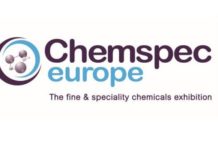Takeda Pharmaceutical Co. announced that the EC extended the current marketing authorization of ADCETRIS to include treatment of adult patients with previously untreated CD30+ Stage IV Hodgkin lymphoma in combination with AVD (Adriamycin, vinblastine and dacarbazine).
ADCETRIS is an antibody-drug conjugate (ADC) directed at CD30, a defining marker of Hodgkin lymphoma. The decision follows a positive opinion from the Committee for Medicinal Products for Human Use (CHMP) on December 13, 2018.
The decision by the European Commission is a welcomed advancement for patients with previously untreated Stage IV Hodgkin lymphoma “ a population that has not been offered a new treatment option in decades, said Anna Sureda, M.D., Ph.D., Head of the Hematology Department and Hematopoietic Stem Cell Transplant Programme, Institut Catal d’Oncologia “ Hospital Duran i Reynals. Patients with Stage IV disease carry a higher risk of progression following their first therapy and experience poorer outcomes as a result. The approval of this regimen may help address this unmet need by providing European physicians and their patients with a new option that showed significant benefit compared to ABVD along with a safety profile consistent with when ADCETRIS is used as a single agent.
We are pleased that the European Commission has approved ADCETRIS in combination with AVD, which has the potential to represent an important milestone for patients and serves as a testament to Takedas longstanding commitment to the Hodgkin lymphoma community, said Jesºs G³mez-Navarro, M.D., Vice President, Head of Oncology Clinical Research and Development, Takeda. The ECHELON-1 clinical trial demonstrated that the addition of ADCETRIS and the removal of bleomycin from the standard ABVD regimen yielded both efficacy and safety benefits in patients. We look forward to making this therapy available for appropriate European patients with Hodgkin lymphoma.
The approval is based on the results of the randomized, open-label, two-arm, multi-center Phase 3 ECHELON-1 study designed to compare ADCETRIS plus AVD to ABVD (Adriamycin, bleomycin, vinblastine and dacarbazine) as a therapy in adult patients with previously untreated Hodgkin lymphoma. The trial achieved its primary endpoint resulting in a statistically significant improvement in modified progression-free survival (PFS) versus the control arm (Hazard ratio [HR] 0.77; p-value=0.035), which corresponds to a 23 percent reduction in the risk of progression, death or need for additional anticancer therapy. Key subgroup analyses showed a larger effect in patients with Stage IV Hodgkin lymphoma in the ADCETRIS plus AVD arm versus the control arm (modified PFS; HR 0.71; p-value = 0.023).
The safety profile of ADCETRIS plus AVD in the ECHELON-1 trial was generally consistent with that known for the single-agent components of the regimen. The most common clinically relevant adverse events of any grade that occurred in at least 15 percent of patients in the ADCETRIS plus AVD and ABVD arms were: neutropenia, constipation, vomiting, fatigue, peripheral sensory neuropathy, diarrhea, pyrexia, peripheral neuropathy, abdominal pain and stomatitis. In both the ADCETRIS plus AVD and ABVD arms, the most common Grade 3 or 4 events were neutropenia, febrile neutropenia and neutrophil count decrease.
This decision by the European Commission means that ADCETRIS in combination with AVD is now approved for marketing of this indication in the 28 member states of the European Union and applicable in Norway, Liechtenstein and Iceland. For further details about the European Commission decision, please visit the European Medicines Agency website: www.ema.europe.eu/ema
About Takeda Pharmaceutical Company Limited
Takeda Pharmaceutical Co is a global, values-based, R&D-driven biopharmaceutical leader headquartered in Japan, committed to bringing Better Health and a Brighter Future to patients by translating science into highly-innovative medicines. Takeda focuses its R&D efforts on four therapeutic areas: Oncology, Gastroenterology (GI), Neuroscience and Rare Diseases. We also make targeted R&D investments in Plasma-Derived Therapies and Vaccines. We are focusing on developing highly innovative medicines that contribute to making a difference in people’s lives by advancing the frontier of new treatment options and leveraging our enhanced collaborative R&D engine and capabilities to create a robust, modality-diverse pipeline. Our employees are committed to improving quality of life for patients and to working with our partners in health care in approximately 80 countries and regions.



























